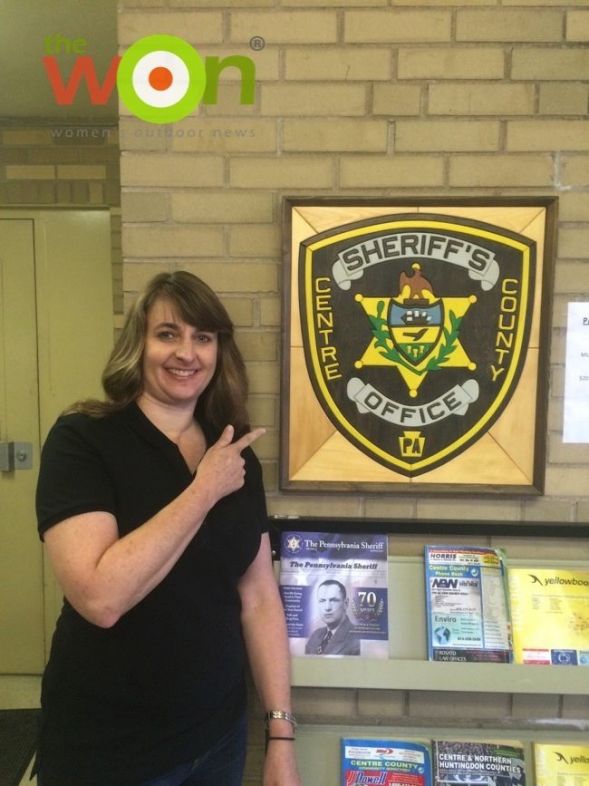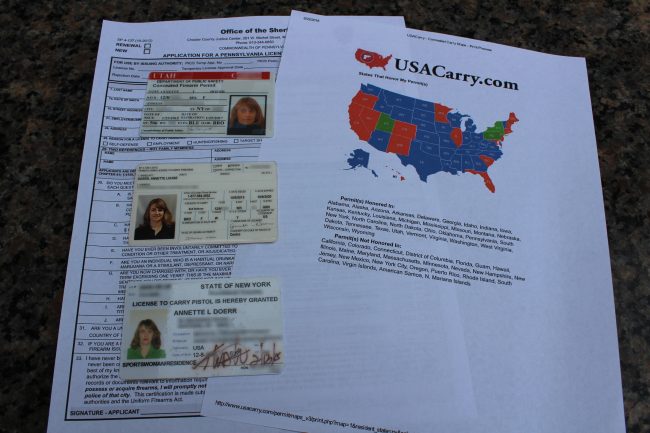If you’re reading this column, you likely have a pistol license issued by the state in which you live. If you’re lucky enough to live in one of the “Constitutional Carry” states, you may not even need to have a state license. Hopefully at some point in the future, having your pistol permit will be similar to having your driver’s license. When you’re driving and you get to your state line, you don’t have to stop. That’s not the case when it comes to handguns.
Depending on the state in which you live, your pistol license may or may not have reciprocity to legally carry your pistol in other states. Some states—including New York, the state where I live—do not grant reciprocity to any state.
Many states will offer a nonresident permit so that out-of-staters can legally carry their firearm when in that state. While my home state of New York does not currently grant reciprocity to any other state, a New York pistol permit is recognized and has reciprocity in 22 other states. Confusing, right? A great resource that I use often is the interactive reciprocity map on the website usacarry.com. This website also contains up-to-date information on the latest reciprocity agreements and changes that happen during the year. That said, as responsible firearm owners, it’s up to each of us to know the laws of the states we live and travel in, so do your homework.

Two popular states that issue nonresident pistol permits are Florida and Utah. The bonus to these 2 particular states is that once you meet the application requirements, you can apply by mail. (Many states that offer nonresident permits require you to appear in person to apply.) Both Florida and Utah require a certain amount of documented training, such as an NRA pistol class or a specialized Utah pistol course, prior to submitting your application, fee and fingerprint cards.
FLORIDA: At the time this is going online, the Florida nonresident permit cost $112. You may deduct $42 for the fingerprint processing fee if you have your fingerprints digitally scanned by your local law enforcement agency and are submitting a digital copy.
The minimum requirements to qualify for a pistol license in Florida, according to the Fresh From Florida state-run website, are as follows:
Applications can be submitted through the mail, or in person.
UTAH: At this time, the cost of a nonresident Utah Concealed Firearm Permit is $49; it has reciprocity in 35 states. The minimum requirements for a Utah permit as stated on the Utah DPS website are as follows:
A criminal background check is conducted for all applicants.
Of note, Utah requires the completion of its own safety class, which is taught by Utah-certified instructors. A list of current Utah instructors can be found here: Certified Utah instructors.
While Florida and Utah nonresident permits are widely popular, depending on where you live and where you plan on traveling with your firearm, you might want to check the requirements and reciprocity for other states near you, even if it means applying in person. For example, although I live in New York, I spend a lot of time at a home in the mountains of Pennsylvania. Because of this, I obtained my Pennsylvania nonresident License to Carry Firearm (LTF). Despite the fact that I own a home and property in the state, I cannot legally obtain a resident permit as Pennsylvania is not my primary state of residence. No worries, though—I can still do everything with my nonresident permit that I could with a resident permit, and as an added bonus, Pennsylvania has reciprocity to 26 additional states. Between my New York resident permit and my Utah and Pennsylvania nonresident permits, I could drive from Vermont to Washington State and never have an issue, thanks to reciprocity!

If you’re considering applying for a nonresident pistol permit, here are 9 things you need to know:
While I’ve shared a lot of information on 2 state’s application process, they are similar to many other states. Take a look at the links I’ve provided above, and see if obtaining a nonresident pistol permit makes sense for you. Be safe out there, and carry on!
Annette Doerr is a freelance outdoor writer and business services consultant living in suburban New York. This married mother of two is an NRA Certified Pistol Instructor and Range Safety Officer. Annette is not only passionate about the sport of shooting, she also loves helping new shooters get involved, especially women and teens. An active equestrian, she enjoys riding her American Quarter horse, Cody. She volunteers in greyhound rescue and adoption, and shares her home with Casper, a rescued racing greyhound, along with her her cat, Tony, and her husband, Bob. Visit Annette at WeShoot2.com, her personal blog. View all posts by Annette Doerr